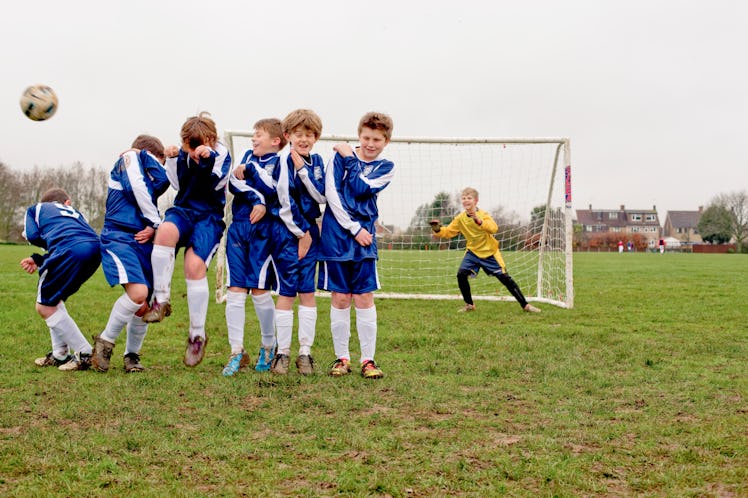The Surprisingly Strong Case For Forcing Kids Into Sports
Sports are good for kids. Being on a team is good for kids. Is it time to make them do it?

Some kids are sports agnostic. For whatever reason — natural inclination, unfortunate experience, unintended conditioning — they lack the desire to engage in organized athletics. There’s nothing wrong with this resistance, but it can put parents in a quandary. Sports are great for the health of a kid and provide a clear path to socialization. That said, forcing competition on children rarely ends well. So what’s a confused parent to do? Is accepting an indoor kid’s indoorsiness doing them a disservice? As it turns out, the answer may be yes. But shoving them onto the field doesn’t help anyone.
“I would like to modify the word ‘push’ because that carries baggage,” says Dr. Jim Taylor, sports psychologist and author of Positive Pushing: How to Raise a Successful and Happy Child. “Pushing suggests an agenda based on the parent’s needs rather than the best interests of the child… I think the better way to put it is to encourage them.”
To be clear, parents should force their kids to play a sport as opposed to forcing them to play a specific sport. Presenting opportunities is a far better route than forcing a specific path.
Taylor notes that the act of encouraging a kid aligns better with the parental prerogative to offer sound support for participation. After all, parents shouldn’t be getting their children into sports for selfish reasons. They should be doing so in the kids’ best interest. And they should feel comfortable explaining their motivations. And that’s where encouragement comes in. Encouragement is causal and result-oriented. Suddenly, dad is advocating for soccer because he wants to instill specific values, which sports can do, not because he’s a Manchester United fan.
“Physical health is a value. Being exposed to challenges is a value ... Family sport participation is a value.”
“Physical health is a value,” Taylor says. “Being exposed to challenges is a value. Learning teamwork is a value. Striving towards goals is a value. Family sport participation is a value.”
But it doesn’t all have to be about improvement. Having fun is also a value. And it’s important to remember that the benefits of sports will remain elusive if a kid is not enjoying themselves. It’s one thing to encourage a kid into a sport. It’s another to encourage a child into a sport they loathe. A lack of engagement on the kids part is not going to help. In fact, a bored and uninterested kid who isn’t having fun might have a significant amount of trouble fitting in with teammates.
“If the kid is having a good time, if it’s fun, they’re going to want to continue doing it, and the more they do it the more they will gain the benefits,” says Taylor. “It becomes self-reinforcing.”
Importantly, that means that parents may have to broaden their definition of sports. Yes, extracurricular team sports like football, baseball, soccer, and hockey, may feel like the obvious go-to. But there are a huge variety of sports for kids to try. Parents should be willing to consider everything from Karate to dance to archery to fencing.
What counts as sport gets increasingly broad when non-competitive options are included. Because winners and losers aren’t a prerequisite for sport. There are plenty of options that can be done solo, cooperatively, or recreationally.
“If the kid is having a good time, if it’s fun, they’re going to want to continue doing it.”
“Hiking is a viable sport,” says Taylor. “It doesn’t matter as long as the kids are being physical. I do think organized sports can have benefits in a formal way but any kind of physical activity is healthy.”
That means encouraging a kid into sports will likely be an ongoing process. Children are not always going to fall in love with a sport of the first exposure. Alternatively, they may even fall out of love with a sport during the fourth practice or after four years. That can be wildly frustrating to parents, but flexibility and openness are key. Parents need to remember that participation and fun are about their kid’s health and development, not about the parent’s ego.
That said, Taylor notes that parents who remain supportive have the best chance of making sports a positive experience for their children.
“The only thing that I would say is that the parents need to be willing to support their kid in the sport,” Taylor explains. “Which means the parents need to have some sort of interest in it or commitment to it.”